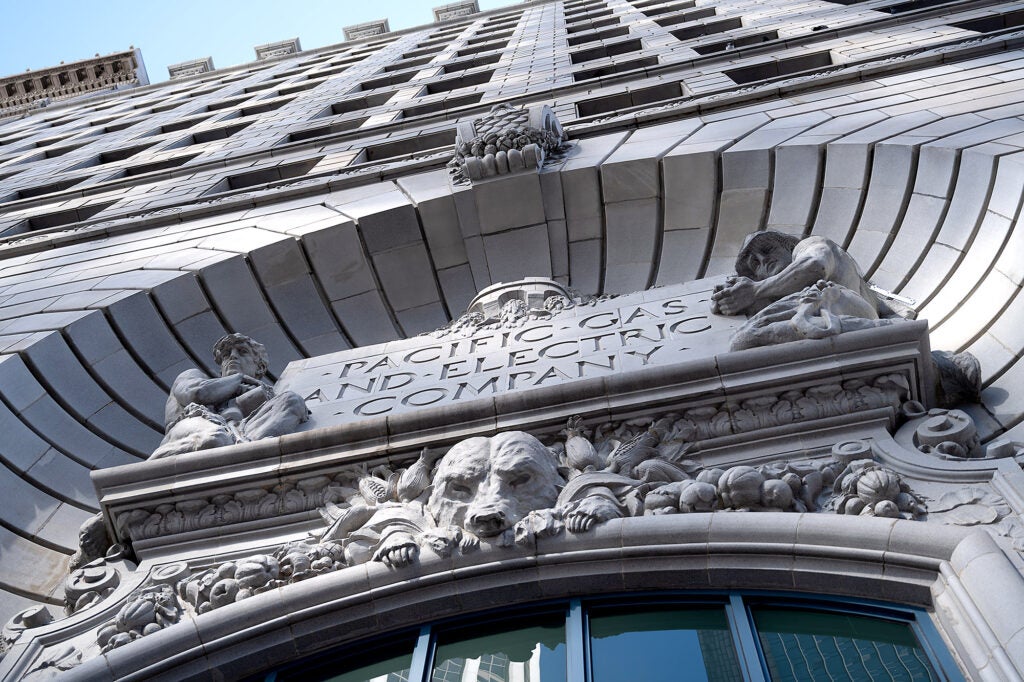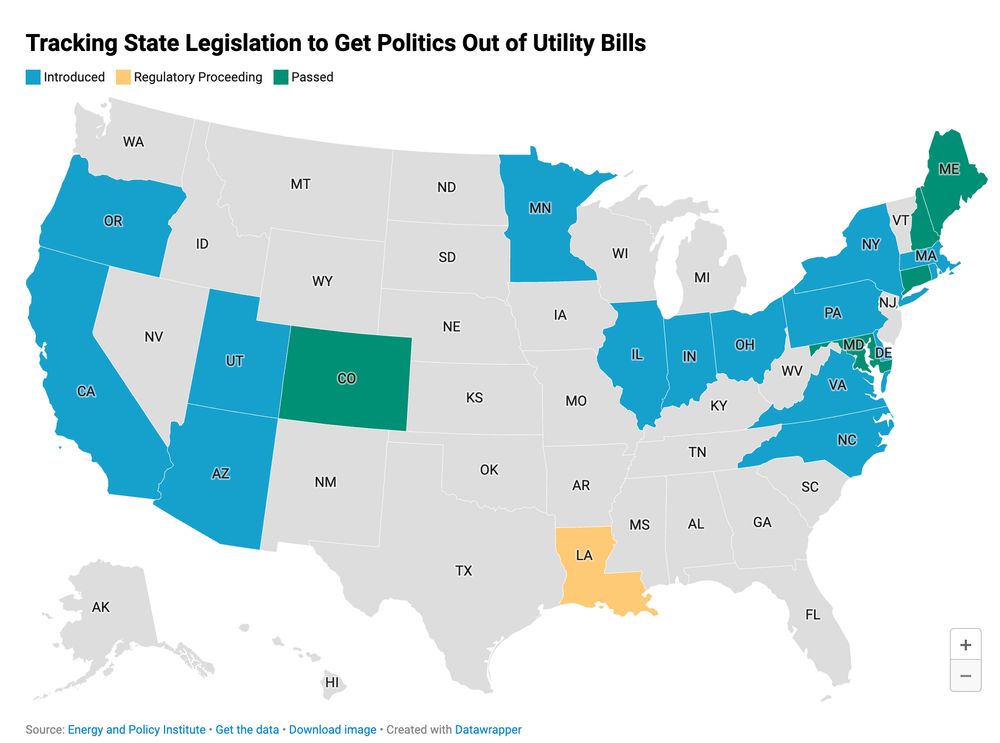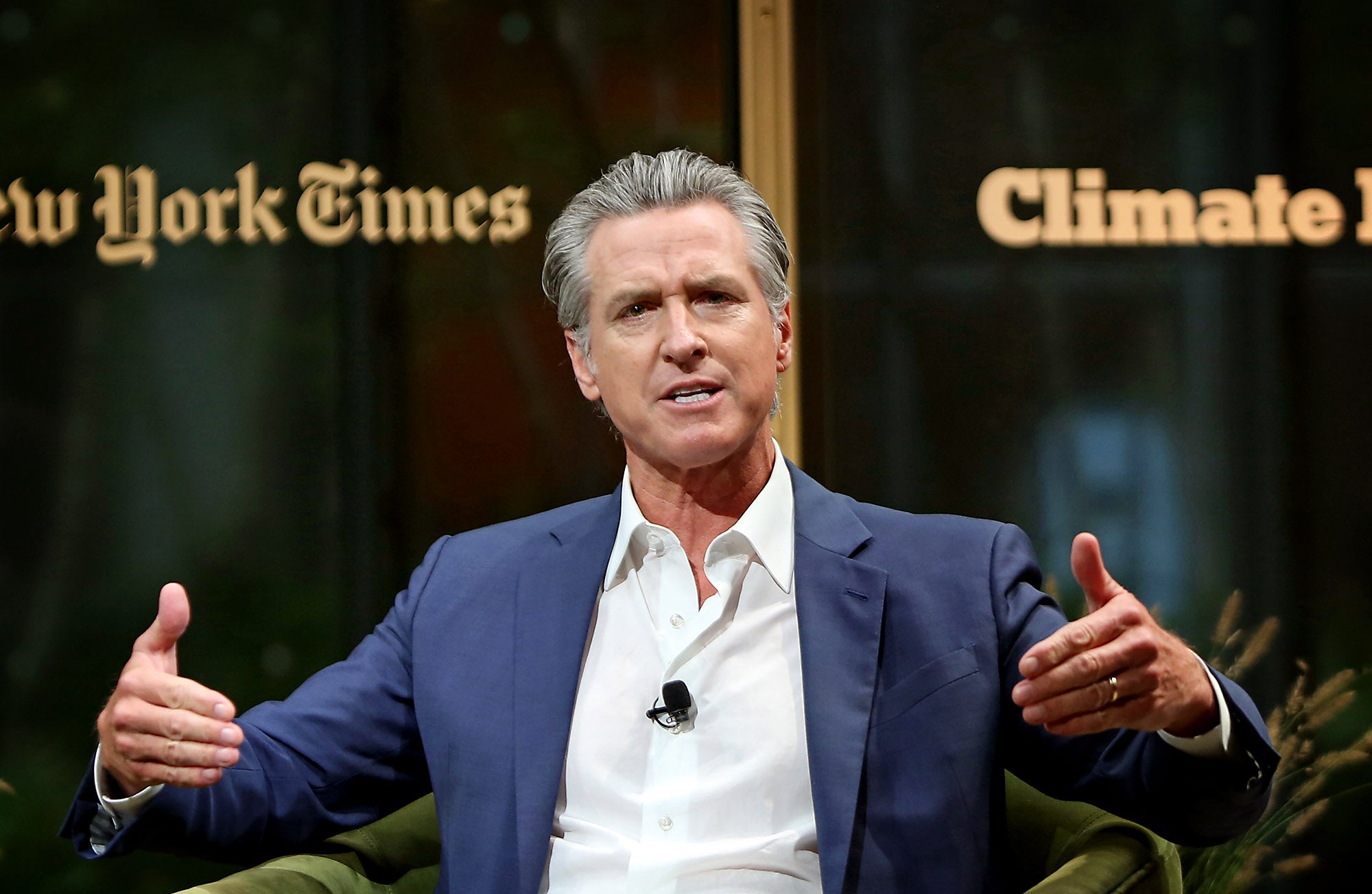A New Law Can Cut Expenses that Shouldn’t Be in Californians’ Utility Bills
It's up to Governor Newsom to sign AB 1167 into law and give Californians the protections other states are already enjoying.

Governor Gavin Newsom speaks onstage during the NYT Climate Forward panel at Climate Week 2025. (Yana Paskova / Getty Images for NYT)
If you’ve paid utility bills in California over the past several years, you’ve no doubt seen your bills go up — probably by a lot. What you may not know is that some of what you’re paying goes far beyond keeping your lights on, and you may be footing the bill for lobbying and corporate image polishing for monopoly utilities. Some utilities in California have been caught slipping exorbitant costs into customers’ bills — and it’s time California put a stop to it with AB 1167, the California Ratepayer Protection Act. The bill has been passed by the state legislature. Now, it needs Governor Newsom’s signature to become law.
The dirty secret of utilities abusing of customer funds in California came to light several years ago, when the Sacramento Bee reported that SoCalGas spent a staggering $36 million lobbying against California cities’ climate and clean air policies, and then passed those costs on to its customers.
Likewise, PG&E was caught last year trying to use $6 million in wildfire funding — paid for by customers to address wildfires — to bankroll TV ads aimed at polishing the company’s tarnished image. It’s outrageous that they tried to slip customers the bill for that particular rehabilitation project. Keep in mind, PG&E’s rates have increased by 41% in the last 3 years, far outpacing inflation and fueling the affordability crisis in the Bay Area. And while Californians struggle to pay their gas and electric bills, these monopoly utilities report soaring profits. PG&E reaped record profits for the second year in a row in 2024, reaping $2.47 billion in profits while requesting approval for six rate hikes on its customers that year. And for another example, SoCal Edison hit $1.62 billion in profits for shareholders in 2024, after increasing rates by 9.8% last year.

The facade of the Pacific Gas and Electric Company building in downtown San Francisco. (Smith Collection / Gado / Getty Images)
While utilities should not be slipping the costs of their political and promotional activities into customer bills, they are currently incentivized to see what they can get away with. This is because uncovering misuse of customer money takes significant time and resources, often requires overcoming utility obstruction, and when utilities are found to have improperly charged customers, they often claim inadvertent error. In the face of discovery from regulators or advocacy organizations doing investigations, utilities will simply move the costs to a shareholder account and face no other repercussions.
If you rob a bank, and the only consequence for getting caught is returning the money you tried to steal, you are incentivized to keep robbing banks. This is how things work now when it comes to utilities slipping lobbying and promotional costs into customer bills and what AB 1167 is designed to stop.
Authored by California Assemblymember Marc Berman, AB 1167 establishes a needed structure to ensure utilities properly account for their political and promotional expenses:
- First, AB 1167 builds guardrails with clear definitions of the lobbying, promotional, and other activities for which utilities are prohibited from making customers foot the bill.
- Second, it increases transparency so misuse of customer money is much easier to spot. For example, AB 1167 requires a utility’s TV ads and other public messages to clearly identify whether they are paid for by shareholders or customers. This both eliminates hurdles to obtaining this information and motivates compliance as the public will now be able to see what ads their utility bills are paying for.
- And third, it establishes consequences by requiring regulators to impose penalties if they break the rules.
AB 1167 also catches up California with states like New York, Maryland, Colorado, and Maine that prohibit utilities from charging customers for the costs of their expensive memberships in outside lobbying groups.
States like Connecticut that have implemented transparency provisions similar to AB 1167 have already achieved millions in ratepayer savings. AB 1167 is commonsense legislation that will give the people of California confidence that utilities are not slipping the costs of their political influence machines into their energy bills.

California would be the 7th state in recent years to pass a law prohibiting utilities from abusing customer funds. (Energy and Policy Institute)
The bill has passed the legislature, but it needs Governor Newsom’s signature by October 12 to become law. With a stroke of Newsom’s pen, California can follow in the footsteps of other states like Connecticut, Colorado, and Maine, which are already saving their residents money in their utility bills after passing similar measures. And he should — the protections in AB 1167 are a popular idea. According to recent polling, 93% of California voters agree that utilities should not charge customers for wasteful spending, including lobbying, PR, and marketing campaigns. Californians have sent over 7,000 messages to Governor Newsom urging him to pass the bill just through action alerts on our website alone.
Monopoly utilities in California are getting rich. Their executives and shareholders are prospering. They don’t need Californians who struggle to cover groceries and rent every month to bankroll utilities’ lobbying, PR campaigns, or frivolities for major shareholders. It’s time for Governor Newsom to install some commonsense guardrails to protect Californians across the state.
Earthjustice’s Clean Energy Program uses the power of the law and the strength of partnership to accelerate the transition to 100% clean energy.
Zoe Woodcraft
Public Affairs and Communications Officer, Earthjustice
zwoodcraft@earthjustice.org
